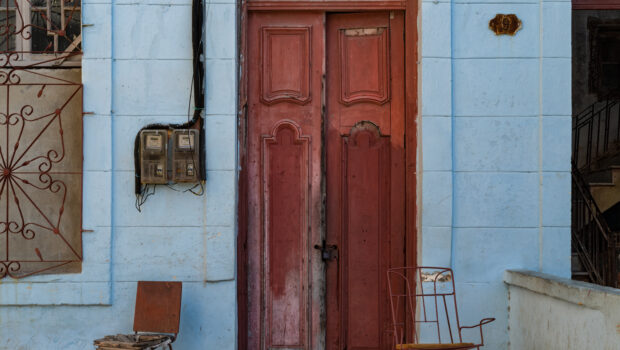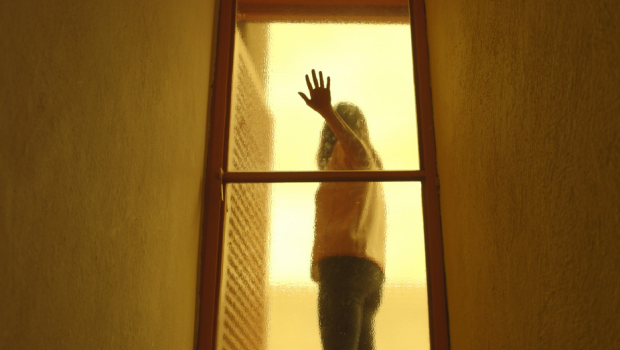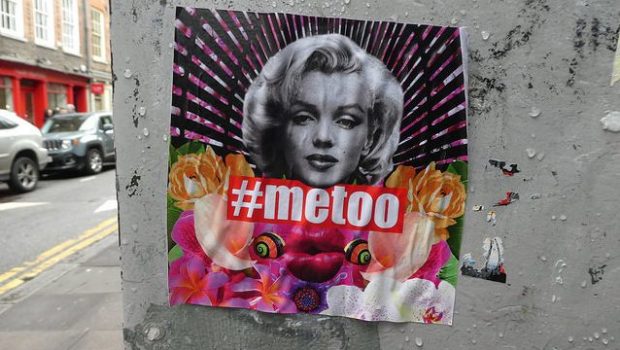Thursday
Tony Bellotto
1
Before I was awake I could already hear the annoying sound of a telephone ringing insistently. I was floating in an intermediate state between deep sleep and wakefulness and arose to hear my own voice grunting in an attempt (futile) to say hello.
I recognized Rita’s high-pitched voice yelling from the other end of the line: “Bellini! Where’ve you been? Dora wants to see you at two o’clock sharp.”
“What time is it?” I asked with a yawn.
“Ten till noon. I’ve been calling all morning. Where were you?”
“Sleeping,” I replied, and she knew that a phone call wasn’t always enough to make me open my eyes.
I said goodbye with a “Be there right away,”leaped out of bed, took a cold shower, shaved.
I walked down Peixoto Gomide to the August Moon, at the intersection with Alameda Santos, and sat down in one of the sidewalk chairs. Antonio, the waiter, served me my usual salami sandwich with provolone cheese on French bread, cold beer on tap, and a short and bitter espresso, no sugar. “What’s up?” he asked.
“Possibly a new case. I don’t know yet . . .”
“Adultery?”
“Must be.”
The sky was a blue that can only exist in May. I took a taxi to the Itália Building, where Dora Lobo commanded her investigations.
Routine cases of adultery made up the greatest part of our work, which was mostly boring (I dozed off for a few seconds during the ride).
I went into the office on the fourteenth floor. Rita greeted me with her ironic and inevitable “good morning.” I caught Lobo in her private office, enjoy– ing two of her favorite habits: smoking an American Tiparillo cigarette and playing Paganini at high volume.
It was a good sign.
2
I had been working for Dora Lobo, Detective Lobo as she was known, for a year.
She told me to sit, turned down the volume of the Paganini using the remote control lying on her desk, and after a deep drag put out what was left of the cigarette.
“Yesterday, in the early afternoon, I received a phone call from a man who wanted to meet me in ‘absolute confidentiality,’ as he repeated several times, ‘after eight at night.’ He identified himself as
‘Dr. Rafidjian, pediatric surgeon.’ At eight thirty he showed up, a very tall, thin guy with a long, melancholy face, somewhere between forty-five and fifty, extremely shy. Know who he made me think of?”
“No.”
“Don Quixote. Kind of stooped over, he was carrying a doctor’s bag and an umbrella. He sat down, resting the bag and the umbrella on his knees, and asked me in an almost inaudible voice, ‘Do you guarantee me absolute confidentiality?’ I answered, ‘Confidentiality is the primordial condition for the exercise of an investigation.’”
Dora and her phrases, I thought, while she opened a drawer and took out a printed sheet of paper and slid it across the desk for me to take a look. It was the contract.
“The man begged: ‘I need you to discover the whereabouts of a young woman. A girl barely eighteen named Ana Cíntia Lopes. She was a dancer at the Dervish, a nightclub on Rua Augusta. A little over a month ago she simply disappeared.’ Desperate at the girl’s sudden vanishing, Don Quixote decided on his own to interrogate employees and customers of the Dervish in search of her whereabouts. The investigation was a dead end; to his surprise, no one there knew an Ana Cíntia Lopes.”
3
“How could anyone at the Dervish not know her if you yourself said she worked there as a dancer?”
“I implore you to respect my constraints. Because of my reputation I have always avoided frequenting such places. Speaking frankly, Mrs. Lobo, I’ve never been inside the Dervish or any other nightclub. Therefore, it was Ana Cíntia herself who told me she worked there as a dancer.”
“Then you admit she lied?” “Maybe . . .”
“Lied when she said her name was Ana Cíntia, or when she claimed she worked at the Dervish?”
“I don’t know, and that’s why I’m here. To find out.”
“Mr. Rafidjian, be more clear! How did you meet Ana Cíntia if you never set foot in the Dervish or any other such establishment?”
“I never went in, but for some time now I’ve been an uncommitted voyeur . . .”
“What do you mean?”
“I would park my car on the opposite side of the street and study the movement of people in front of the Dervish. Whenever I had some free time between visits with patients, I was there in my car, observing. That was how I noticed a dark-complexioned young woman with brown eyes filled with indescribable sadness. I always saw her. Going in, coming out, or just standing on the sidewalk. I fell in love before she even knew I existed. One day I worked up the courage to ask her to get into my car and go for a drive . . .”
“And then?” “She accepted.”
4
Rafidjian and Ana Cíntia started meeting periodically, at times previously agreed upon by telephone. This went on for six months, more or less. At the beginning of April they set up a meeting as usual in front of the Dervish. Ana Cíntia didn’t show up. After that, Don Quixote had no word of her: the girl had disappeared without a trace.
Dora stared at me in silence after recounting the exchange. I looked at her hair, still luxuriant for a woman of sixty. The picture of a successful woman: independent, living alone, subtly ambiguous (single), discreetly egocentric (only child), and absolutely proud of an intelligence as intimidating as a gun pointed at your forehead.
“Obviously, before Rafidjian left, I put him through a series of questions: Where did Ana Cíntia live? Did she have friends? Relatives here in São Paulo or another city? Was she in danger—did she feel threatened? Enemies? Pimps, protectors? Did she use drugs? To each of these the doctor shook his head. Finally, he said: ‘I know nothing about her. I do know she’s pure, ingenuous, childlike, and why not say it, a bit diabolical . . .’ After that odd comment he said good night and that was all.”
I shifted my gaze to the Persian carpet spread under the desk and asked, “Is there a photo of the girl?”
“No, just a vague description: brown shoulder– length hair, dark eyes and thick eyebrows, a squarish face, and a slim body with muscular legs. No distinguishing moles, marks, or scars.”
Dora got up, went to the cabinet, poured her– self a glass of port. She offered me a Scotch, which I didn’t refuse. We toasted, drank. She went to the window, looked down at the cars moving along Avenida Ipiranga.
“I guess I should begin by gathering some information over on Rua Augusta,” I concluded. “Starting tonight at the Dervish. Keep me informed.”
She returned to her desk and consulted her appointment book. “Call Iório, in the Fourth Precinct.” She shoved a sheet of paper toward me with a phone number. “He’s a friend and knows the area well.” She picked up the remote and Paganini came back at full volume. Then she extended her hand and dis- missed me by pointing the wineglass in my direction. “Good luck, Bellini.”
Bellini. My name is Remo. Remo Bellini. It so hap- pens that I detest that name Remo, and there’s a good reason for it. Let me explain: on a certain fifth of June I was expelled from the womb of Livia Bellini along with my twin brother Romulo. The idea of baptizing the newborns with the names of the legendary founders of Rome came from Tulio Bellini, our father.
Tulio, at the time a young criminal lawyer just starting his career, was overflowing with paternal pride at learning he had sired two identical beings, male and primogenitary.
For a short time, however. Unexpectedly, as is its style, fate threw a bomb at Livia and Tulio: Romulo, unable to resist, succumbed to an attack of pneumonia two days after birth.
That’s when my problems began.
*Excerpted form Bellini and the Sphinx, copyright 2019 by Tony Bellotto, English translation from the Brazilian Portuguese by Clifford E. Landers. Used with permission of the author and Akashic Books (akashicbooks.com)
 TONY BELLOTTO is the author of the best-selling Bellini mystery novels, which have been released as major feature films and translated widely, establishing him as the preeminent writer of Brazilian detective fiction. He is also a guitarist and songwriter for the famed Brazilian rock band Titãs. Bellotto writes for the newspaper O Globo and hosts a television show. He is the editor of Rio Noir and São Paulo Noir, both published by Akashic Books. Bellini and the Sphinx is his latest release with Akashic.
TONY BELLOTTO is the author of the best-selling Bellini mystery novels, which have been released as major feature films and translated widely, establishing him as the preeminent writer of Brazilian detective fiction. He is also a guitarist and songwriter for the famed Brazilian rock band Titãs. Bellotto writes for the newspaper O Globo and hosts a television show. He is the editor of Rio Noir and São Paulo Noir, both published by Akashic Books. Bellini and the Sphinx is his latest release with Akashic.Posted: January 22, 2019 at 10:11 pm










